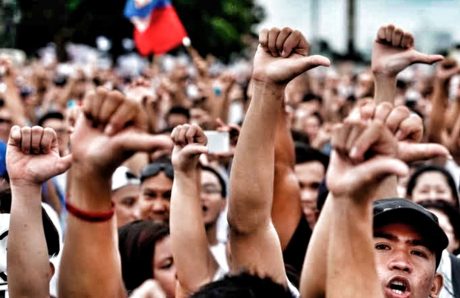
If there is one thing that has long baffled observers of social norms and collective behaviour, it is the predisposition of Filipinos to clanishness and distrust for one another. This lack of trust and extreme insularness that seem to be roadblocks to large-scale cooperation and organisation are what could likely be signficiantly hindering progress at a national level. Even after more than a hundred years of a collective identity as a “Philippine nation” and more than half a century of independence, Filipinos are still known for a debilitating form of regionalism and, worse, small-scale tribalism that prevents the needed social cohesiveness and harmony to blossom at the national scales essential for broader national development.
Why is it that Filipinos are unable to mobilise at these larger scales and remain trapped in petty bickering between small tribal units and cliques?
One possible theory could have to do with the Philippines’ tropical climate. In tropical climates, disease spreads quickly. Because of this, tropical societies such as that of the Philippines’ may have evolved relatively more acute pathogen avoidance behaviours than socieites that developed in more temperate and colder regions more hostile to pathogens and the parasites that carry them. In the steaming rainforests where early Filipinos lived, on the other hand, tribal units that applied a more open and trusting stance towards strangers and outsiders may have put themselves at relatively increased risk of being decimated by diseases carried by these foreigners. Indeed, because disease-carrying organisms like mosquitoes and flies thrive in tropical climates and pathogens survive longer in the moist, humid, and warm environments of the tropics, it would have been more prudent for small bands and communities of people to avoid contact with outsiders and even keep their distance from neighbouring tribes and clans.
Thus, in all probability, a heightened propensity for disgust and distrust against outsiders may have spelt the difference between survival and extinction for many primitive tribes living across what were to collectively become the Philippine Islands. Given that such cultural traists will have evolved over hundreds of thousands of years, the depth to which they are embedded in the culture and social fabric of native Filipinos would have been enough to make these traits virtually impervious to any influence by the relatively short hundred-odd year periods over which native Filipinos were subject to rule by European colonial powers such as Spain and the United States. Indeed, it is quite evident that, to this day, these traits remain embedded in Philippine society and can be seen manifesting themselves in today’s politics and society even as they are now incompatible with the demands of modern nation-building.
Given the strong possibility that behaviours that foment disunity and distrust amongst Filipinos may be genetic in nature and, even if not so, so intimately-woven into the fabric of Philippine society, how then can Filipinos build the modern and gllobally-competitive nation they so aspire to see? That, indeed, is one of the hard questions Filipinos need to confront and address in order to chart a path that takes into account their unique circumstances and characters as a people. The alternative is to continue latching onto obsolete narratives or foreign ideologies that are incompatible with the realities of the Filipino condition. It is ultimately up to the Filipino people to decide how to go about stepping up to the challenge of prospering as a society despite these obstacles. It begins by recognising the inconvenient truths about their society and culture.
No comments:
Post a Comment